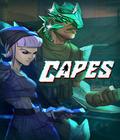There are very few video game stories that I actually remember – Half Life I suppose, and, ummm… Shenmue. I’m playing a preview build of Free Radical’s Second Sight at the moment and I guess that’s reasonably compelling. Considering though that I must have played thousands of titles in my time, three memorable storylines is a tad on the light side. I mean, look at what is in my opinion the greatest game ever programmed, Miyamoto’s sublime Super Mario World on the SNES. I guess there was a storyline, the same storyline that seems to feature in nearly all of Mario’s outings: Bowser or some other spiky foe kidnaps the Princess, and you have to rescue her. Imaginative? No. Inspirational? Yeah right. Completely superfluous? Of course, and to my mind that doesn’t matter one bit. Whether the events in the game are driven by a Star Wars-like epic narrative or absolutely none at all, the level design is still unmatched and the gameplay utterly divine.
This point to me is perfectly illustrated when classic puzzlers like Tetris or Bust-A-Move get redesigned for a new platform and a placid story is forced into the mix in an attempt to justify the gameplay. There is simply no need to attach a storyline to Tetris. The joy comes from rearranging the mesmerising and relentless stream of blocks, from the puzzle itself. A narrative serves absolutely no purpose other than to cheapen the essence of the game. Look at the largest selling video game ever made: Super Mario Bros 3. The storyline to that was… to be honest, I really can’t remember, but I could hazard a guess!
There are exceptions, of course. RPG’s rely heavily on the narrative to drive things forward. Indeed, the most highly regarded RPG’s are those that boast the most memorable plots. But I would argue that this genre is very much the exception. Look at what happened when Namco tried to wedge a narrative into R Racing. It simply didn’t work. The story was nowhere near compelling enough to lure non-driving fans to play, and for gamers who love their driving the storyline comprised little more than a string of cut scenes getting in the way of the action. Codemasters fared slightly better with their narrative efforts in TOCA Race Driver 2 though I never found myself playing the game to see what direction the story might take next.
The problem is that you are either told a story or you tell one. In both situations the story is predetermined, the conclusion already decided. Games, by their nature, are interactive, are dynamic. Therefore if you try to place a strong narrative into a game then in turn the freedom of choice gifted to the player is instantly negated. Modern RPG classic Knights of the Old Republic boasted a great story and plenty of freedom for the player, but at the end of the day there was no way the player could affect the overarching narrative. It didn’t matter whether you spent the game being perfectly polite to Bastilla or succumbing to the dark side, force choking your way through and incurring her wrath –either way it turned out she had the hots for you in the end.
In recent years there’s been a drive for trying to turn games into interactive films, to embody the narrative. But has this ever succeeded? Some enjoyed Sony’s The Getaway because it enabled them to burn around the streets of London, not because of the plot. Indeed, the painfully clichéd cockney story was quite agonising for us Brits. How about Driv3r? Personally, despite the obviously gaping flaws of the title there were certain moments that I quite enjoyed. Glitches and the lack of testing aside, one of the worst features of the game was the piss poor story. Tanner was about as likeable as a bout of genital warts, and the tired car-jacking plot was about as enthralling as painting a very long fence in a heavy storm.
The great games of this world are great because of their design and the way that they play. Take new release Spiderman 2. The detractors draw reference to the fact that the random crime stopping moments are repetitive, and that there is a lack of variation. This is true of course, but the joy of the title lies in the brilliant way in which you’re free to swing about the city, to explore and to feel more like Spidey than in any game before it. A great game is exactly that – a great game. If there happens to be a decent narrative too then sweet, that’s a bonus, but it’s far from a necessity. Did I adore the Prince of Persia: The Sands of Time because of its compelling story? Not likely. It’s great because of the way in which it explores 3D space, the way in which it redefined the 3D platformer.
I concluded that this whole phenomena is a generational thing. The chap from work who voiced his dislike for Full Spectrum Warrior is a sprightly 19. It upsets me to say that makes him 6 years my junior. His first great gaming experience was Metal Gear Solid, one of the more important narrative based action titles. Personally I’m far more at home playing a great shooter like Thunderforce IV or Shikigami No Shiro II. I’m sure these games do give you a reason why you should be shooting everything on the screen, but I’m not remotely interested. Ships come at me, I shoot them. It’s huge fun and I love it. Why I’m doing it is not remotely important to me.








